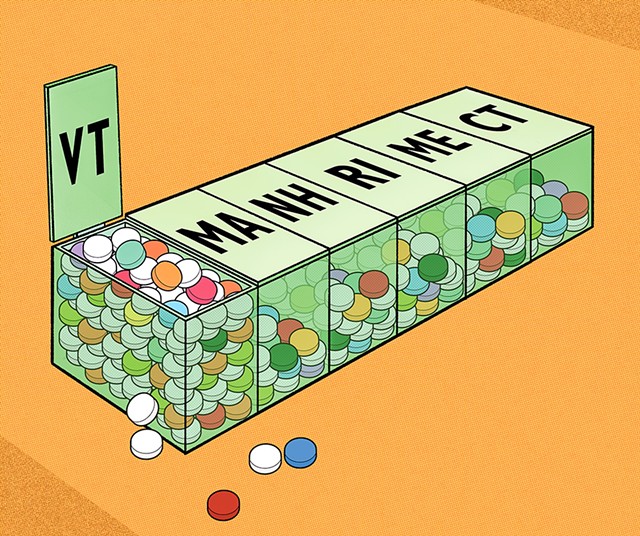click to enlarge 
Vermont will participate in a new criminal task force to crack down on health care providers who are illegally prescribing or diverting opioids, federal officials said Wednesday, in the latest effort to curb the flow of dangerous drugs into the wrong hands.
The task force will marshal the resources of various federal agencies to target criminal behavior across three New England states — Maine, Vermont and New Hampshire — hit hard by the overdose epidemic. Last year, Vermont recorded 215 accidental overdose deaths, the most since the state began tracking the figure.
Federal prosecutors based out of the three states will participate in the joint effort and say they will work closely with state authorities. "Health care providers who issue illegal opioid prescriptions undermine important efforts to address the epidemic," Nikolas Kerest, the U.S. Attorney for Vermont, said in a press release.
Health officials and law enforcement leaders have long called on the medical community to curb the number of opioids it prescribes, and the U.S. has made notable strides over the years.
According to the U.S. Centers for Disease Control and Prevention, the number of prescriptions issued nationally has fallen from a peak of 255 million in 2012 to about 143 million in 2020.
That same trend has played out in Vermont. Health care providers in the Green Mountain State wrote about 262,000 prescriptions for opioids in 2020 — nearly 60 percent fewer than
five years earlier. About one in every four Vermont residents received an opioid prescription two years ago, on par with the nationwide rate.
Still, prescription drugs continue to play a role in the overdose epidemic. Many people who use street drugs say they first became addicted from prescription opioids — acquired illegally or through a legal prescription.
And while the recent spike in deaths has been driven by the growing prevalence of fentanyl, about a fifth of people who fatally overdosed in Vermont last year had prescription opioids in their system, according to state data. Maine reported a similar rate.
Federal officials say their New England task force will look to build on the success of a similar effort in the Appalachian region, which has been viewed as ground zero for the opioid overdose epidemic.
Since its inception three years ago, that task force has charged 111 people who the feds say were responsible for issuing prescriptions for over 115 million controlled-substance pills. More than half of those people have since been convicted.
























































